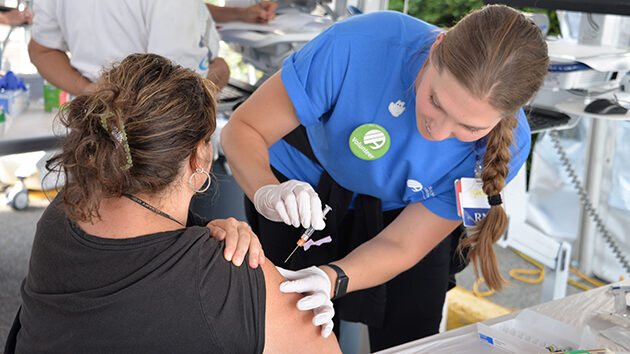Avoid the Flu and Other Illnesses This Winter

When Patricia and Gary Wolfe visit their doctor, Danielle Wales, MD, a primary care physician with Albany Medical Center, they are always sure to take steps to try to prevent getting sick in the winter.
The Valatie couple remembers when they both had the flu.
“It was like you got hit by a Mack Truck—we had fevers, chills, sweats,” Patricia said, adding that it took a month to start feeling normal.
“This time of year we see an uptick in the big three: Covid, flu, and RSV,” said Brian McDermott, DO, infectious disease specialist at Saratoga Hospital.
He said if you feel wheezy or short of breath, have a high fever, or cough severe enough to vomit, seek medical care.
For Covid and flu, Dr. McDermott said antiviral medications can help reduce the severity of symptoms and length of illness. But unlike bacterial infections, antibiotics will not help. RSV does not have a specific treatment, only symptom relief strategies.
“The good news is we have prophylaxis for all three, and the new vaccines keep people out of the hospital,” said Dr. Wales, who is also the medical director of practice quality measures at Albany Medical Center.
She urges all who are eligible to receive their vaccinations and boosters.
She said the viruses affect babies, older adults, and at-risk adults the most. To help protect infants who are among the highest risk for complications from RSV, pregnant people can be vaccinated during weeks 32-36 weeks of gestation, or newborn babies can receive an antibody booster. This process significantly reduces the likelihood of a severe case of RSV that would require hospitalization, or worse.
Dr. Wales tells her patients to protect their hearts by getting a flu shot. “Data show that heart attacks increase during flu season, and that people who got flu shots were less likely to be hospitalized for a heart attack,” she said.